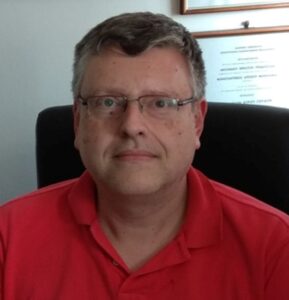Keynote Speakers
 Dr. Gonzalo Nápoles, Assistant Professor, Department of Cognitive Science & Artificial Intelligence, Tilburg University, The Netherlands
Dr. Gonzalo Nápoles, Assistant Professor, Department of Cognitive Science & Artificial Intelligence, Tilburg University, The Netherlands
Title: Sparseness-Optimized Feature Importance For Machine Learning Applications
Abstract. The literature reports a wide variety of attribution methods to determine the importance of problem features leading the prediction of black boxes. These pos-hoc explanation methods span from model-specific to agnostic procedures that have proven successful to a limited extent. However, all these methods fail to produce sparse explanations since they focus on additive contributions and local importance scores rather than isolating the key factors leading to the prediction. In this talk, I will present an agnostic explainer termed Sparseness-Optimized Feature Importance (SOFI) that can be used to explain the prediction of any black-box model, either locally or globally. In practice, the explanation takes the form of a ranking of problem features whose cumulative marginalization leads to fast degradation in model performance. It can be analytically demonstrated that under the modularity assumption, the optimal feature ranking generated by SOFI is unique. If the modularity assumption is dropped, there will be many feature importance rankings leading to the same model performance degradation. Towards the end, I will illustrate the superiority of SOFI in different machine learning settings, including tabular pattern classification, computer vision, time series forecasting and time series classification.
Short Bio: Gonzalo Nápoles is a tenured Assistant Professor at the Department of Cognitive Science & Artificial Intelligence, Tilburg University, The Netherlands. His research involves two main directions. The first one involves Neural Cognitive Modeling and its potential for designing interpretable intelligent systems enabling hybrid intelligence. The second one involves Fuzzy Cognitive Mapping applied to fairness research, such as quantifying and mitigating bias.
 Sotirios K. Goudos, Professor, Department of Physics of Aristotle University of Thessaloniki, Thessaloniki, Greece.
Sotirios K. Goudos, Professor, Department of Physics of Aristotle University of Thessaloniki, Thessaloniki, Greece.
Title: Evolutionary algorithms for Wireless Communications: State-of-the-art and Challenges
Abstract: The keynote will provide a brief introduction to evolutionary algorithms (EAs). Several nature-inspired algorithms have emerged in the past decades that mimic biological entities’ behavior and evolution. EAs are widely used for the solution of single- and multi-objective optimization engineering problems. The EAs have also been applied to various microwave components, antenna design, radar design, and wireless communications problems. These techniques, among others, include Biogeography Based Optimization (BBO), Grey Wolf Optimizer (GWO), Whale Optimization Algorithm (WOA), and adaptive Differential Evolution (DE) algorithms. The use of the above algorithms has an increasing impact on antenna design problems, microwave component design problems, and wireless communications problems. EAs combined on several occasions with numerical methods in electromagnetics have obtained significant and successful results. Additionally, hybrid combinations of EAs are also emerging. Examples of antenna design cases and optimization problems in wireless communications will be presented.
Short Bio: Sotirios K. Goudos is a Professor at the Department of Physics of Aristotle University of Thessaloniki, Thessaloniki, Greece. His research interests include antenna and microwave structure design, evolutionary algorithms, wireless communications, machine learning, and semantic web technologies. Prof. Goudos is the director of the ELEDIA@AUTH lab and a member of the ELEDIA Research Center Network. Prof. Goudos is the founding Editor-in-Chief of the Telecom open-access journal (MDPI publishing). Prof. Goudos is currently serving as Associate Editor for IEEE Transactions on Antennas and Propagation, IEEE ACCESS, and IEEE Open Journal of the Communication Society. Prof. Goudos is currently serving as Chapter/AG coordinator for the IEEE Greece Section. He has been elected IEEE Greece Section Secretary for 2022 and IEEE Greece Section Vice-Chair for 2023-2024. He is the author of the book “Emerging Evolutionary Algorithms for Antennas and Wireless Communications”, Institution of Engineering & Technology, 2021.
